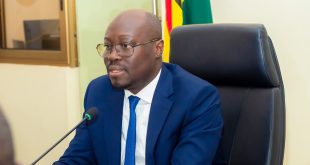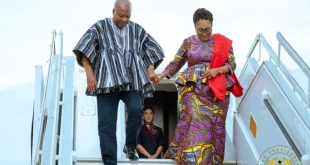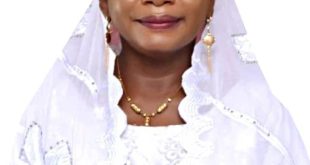The government of Ghana has decided to provide significant financial support to the Livelihood Empowerment Against Poverty (LEAP) program, the National Health Insurance Scheme(NHIS), and the school feeding initiative.
This decision was made in response to a request made by Minister of Finance Dr. Mohammed Amin Adam during his mid-year budget review, which was presented to Parliament on July 23, 2024.
Dr. Adam stressed the government’s unwavering commitment to improving the quality of life for all Ghanaians, especially the most vulnerable populations in the country. He said that the substantial disbursement reflects the government’s determination to provide social services and support.
“To reduce the burden on the vulnerable, we have disbursed GH¢5.4 billion to support LEAP, School Feeding Programme, Capitation Grant and NHIS since January 2024,” he said.
The greater part of these monies will go toward the LEAP program, which gives cash transfers to the nation’s poorest households. Over time, LEAP has shown to be an essential instrument for reducing poverty and raising standards of life. It is anticipated that the extra money would increase the program’s reach and make this essential help available to more homes.
There will also be a major increase in funding for the school feeding program, which aims to enhance the nutritional status of students in public basic schools. Children’s physical and cognitive development depends on proper nutrition, which also has a direct impact on their general wellbeing and academic success. The government hopes to fight child malnutrition and advance improved educational outcomes nationwide by improving the school feeding program.
The additional funds will also help the National Health Insurance Scheme (NHIS). With millions of residents receiving vital healthcare services via it, the NHIS is a pillar of Ghana’s healthcare system. The government hopes to improve the program with this funding infusion and make sure that more individuals can get high-quality healthcare without having to worry about their finances.
The Minister of Finance emphasized the larger economic framework in which these social initiatives are being undertaken. He emphasized that the administration is still dedicated to responsible budgetary management and calculated expenditures in social infrastructure, even in the face of the difficulties presented by the unpredictability of the world economy.
While acknowledging the current state of the economy, Dr. Adam emphasized the need to exercise budgetary restraint and fund initiatives that promote equitable growth and strengthen the foundation of a resilient economy.
Dr. Adam also shared positive developments in the country’s economic performance, noting that Ghana’s economy grew by 4.7% in the first quarter of the year, surpassing initial projections. This growth, he attributed, was due to effective policy measures and robust economic management.
The Minister also emphasized how companies and individuals have benefited from the efforts done in stabilizing the currency rate and inflation. Making progress in these areas is essential to preserving economic stability and fostering an atmosphere that encourages investment and expansion.
Dr. Adam summarized the government’s strategy by saying, “Our government remains steadfast in its commitment to fiscal discipline and social investment, despite the global economic headwinds.” We think that creating a robust economy and promoting inclusive growth need wise investments in social protection programs.
Source: Ghanatodayonline.com
 Ghanatodayonline.com News, Politics, Health, Education & More
Ghanatodayonline.com News, Politics, Health, Education & More




